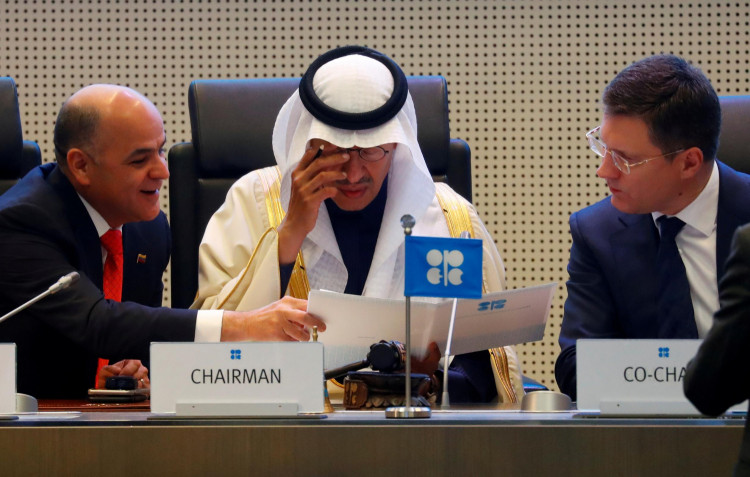Offering no proof whatsoever, president Donald Trump claims Saudi Arabia and Russia have agreed to his proposal to reduce global oil production by up to 15 million barrels per day (BPD) when the current oil price war was triggered by Russia rejecting OPEC's proposal to cut production by only 1.5 million bpd.
Trump resorted to his usual bluster and outright falsehoods to deliver a story intended to deflect attention away from his mishandling of the COVID-19 crisis gripping the United States.
Speaking on CNBC, Trump alleged his talks with Russian President Vladimir Putin and Saudi Arabian Crown Prince Mohammed Bin Salman convinced both leaders to agree to the cuts. Both Putin and bin Salman, however, haven't confirmed Trump's claims.
Trump later tweeted a production cut will be "great for the oil & gas industry." He claims the cut could be "substantially more" than 10 million barrels, again without offering any proof to back-up this claim. He mentioned a cut of 15 million bpd in a tweet.
"Just spoke to my friend MBS (Crown Prince) of Saudi Arabia, who spoke with President Putin of Russia, & I expect & hope that they will be cutting back approximately 10 Million Barrels, and maybe substantially more which, if it happens, will be GREAT for the oil & gas industry!," tweeted Trump. ".....Could be as high as 15 Million Barrels. Good (GREAT) news for everyone!"
Without citing Trump's claim, Saudi Arabia later announced it was calling "for an urgent meeting for OPEC+ group and other countries, with aim of reaching a fair agreement to restore the desired balance of oil markets."
Traders question if a production cut of the huge magnitude Trump claims is even possible, especially if the U.S. -- the world's largest oil producer -- doesn't participate. Sources cited by Reuters said the Trump administration won't ask U.S. companies to slash production, meaning a production cut this large becomes impossible.
"Even if OPEC+ producers reach such an agreement (without participation from the U.S.), the volume of cuts would be much more limited and below 10 million barrels per day," wrote Ayham Kamel, head of Eurasia Group's Middle East and North Africa research team, in a note to clients.
Kamel also said what will most likely happen will be a "large OPEC+ supply cut that is complimented by a U.S. cut." He also said there's a good chance the new talks called by Saudi Arabia will end with no deal. He emphasized the least likely outcome of the talks will be OPEC+ cuts without U.S. participation.
Trump's questionable claim, however, caused prices on Thursday to spike by 25%, the largest spike in history. Despite the jump, WTI remains down more than 40% during the last month.
Global oil demand has evaporated as the COVID-19 pandemic has halted air, sea and land travel worldwide and significantly slowed business activity. These demand destroying events were followed by a price war launched by Saudi Arabia early March to punish Russia for rejecting the voluntary production cuts meant to stabilize global oil supplies.
Saudi Arabia recommended cutting production by 1.5 million bpd as the pandemic slowed demand. Russia rejected the proposal outright, citing the non-punishment of U.S. shale oil producers, sparking the ruinous and ongoing price war where $5 per barrel oil is being talked about.
On March 31, Saudi Arabia boosted its production to a record high of more than 12 million bpd. Oil prices cratered.






